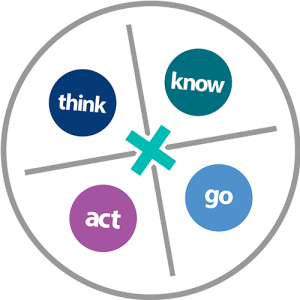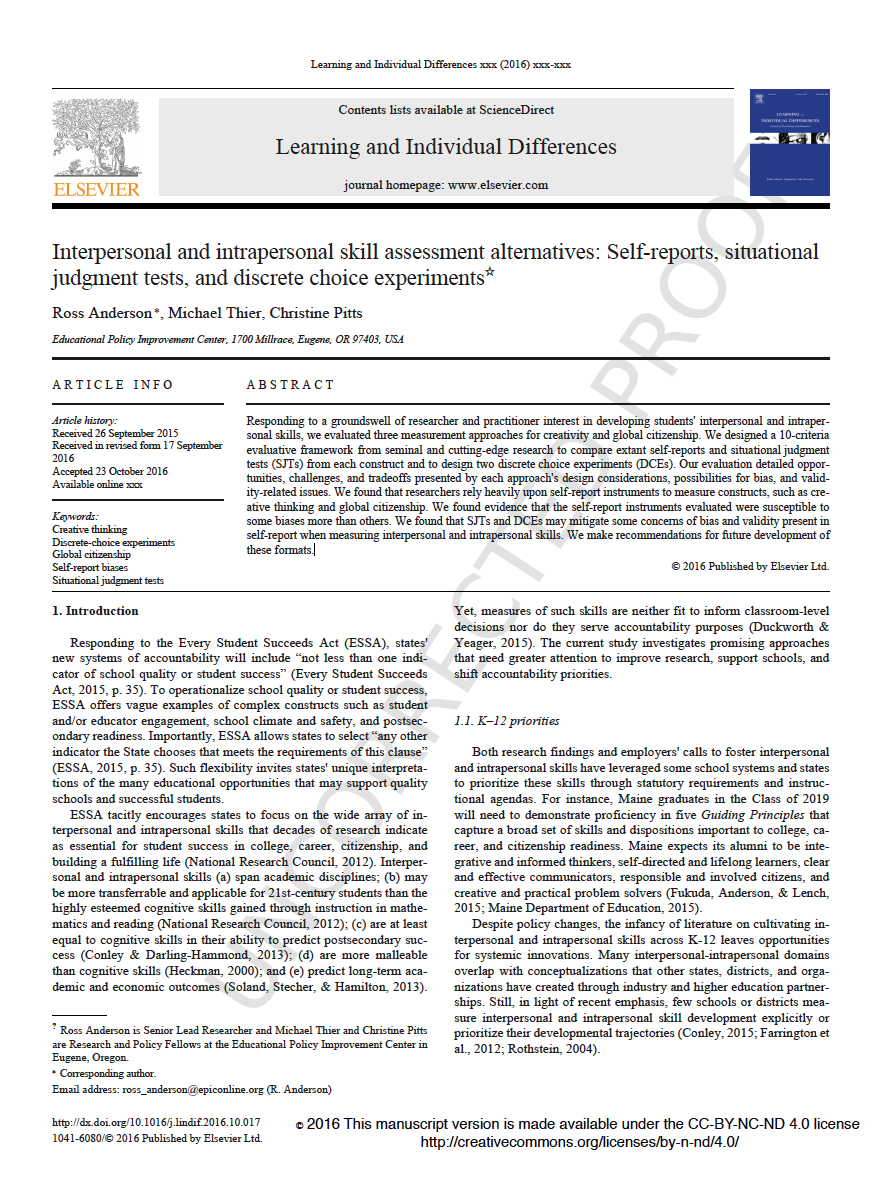Responding to a groundswell of researcher and practitioner interest in developing students’ interpersonal and intrapersonal skills, we evaluated three measurement approaches for creativity and global citizenship. We designed a 10-criteria evaluative framework from seminal and cutting-edge research to compare extant self-reports and situational judgment tests (SJTs) from each construct and to design two discrete choice experiments (DCEs). Our evaluation detailed opportunities, challenges, and tradeoffs presented by each approach’s design considerations, possibilities for bias, and validity-related issues. We found that researchers rely heavily upon self-report instruments to measure constructs, such as creative thinking and global citizenship. We found evidence that the self-report instruments evaluated were susceptible to some biases more than others. We found that SJTs and DCEs may mitigate some concerns of bias and validity present in self-report when measuring interpersonal and intrapersonal skills. We make recommendations for future development of these formats.
IntrapersonalInterpersonalSkillAssessmentAlternatives.pdf (2460 downloads )Responding to the Every Student Succeeds Act (ESSA), states’ new systems of accountability will include “not less than one indicator of school quality or student success” (Every Student Succeeds Act, 2015, p. 35). To operationalize school quality or student success, ESSA offers vague examples of complex constructs such as student and/or educator engagement, school climate and safety, and postsecondary readiness. Importantly, ESSA allows states to select “any other indicator the State chooses that meets the requirements of this clause” (ESSA, 2015, p. 35). Such flexibility invites states’ unique interpretations of the many educational opportunities that may support quality schools and successful students. ESSA tacitly encourages states to focus on the wide array of interpersonal and intrapersonal skills that decades of research indicate as essential for student success in college, career, citizenship, and building a fulfilling life (National Research Council, 2012). Interpersonal and intrapersonal skills (a) span academic disciplines; (b) may be more transferrable and applicable for 21st-century students than the highly esteemed cognitive skills gained through instruction in mathematics and reading (National Research Council, 2012); (c) are at least equal to cognitive skills in their ability to predict postsecondary success (Conley & Darling-Hammond, 2013); (d) are more malleable than cognitive skills (Heckman, 2000); and (e) predict long-term academic and economic outcomes (Soland, Stecher, & Hamilton, 2013).
Authors: Ross Anderson, Michael Thier, Christine Pitts




